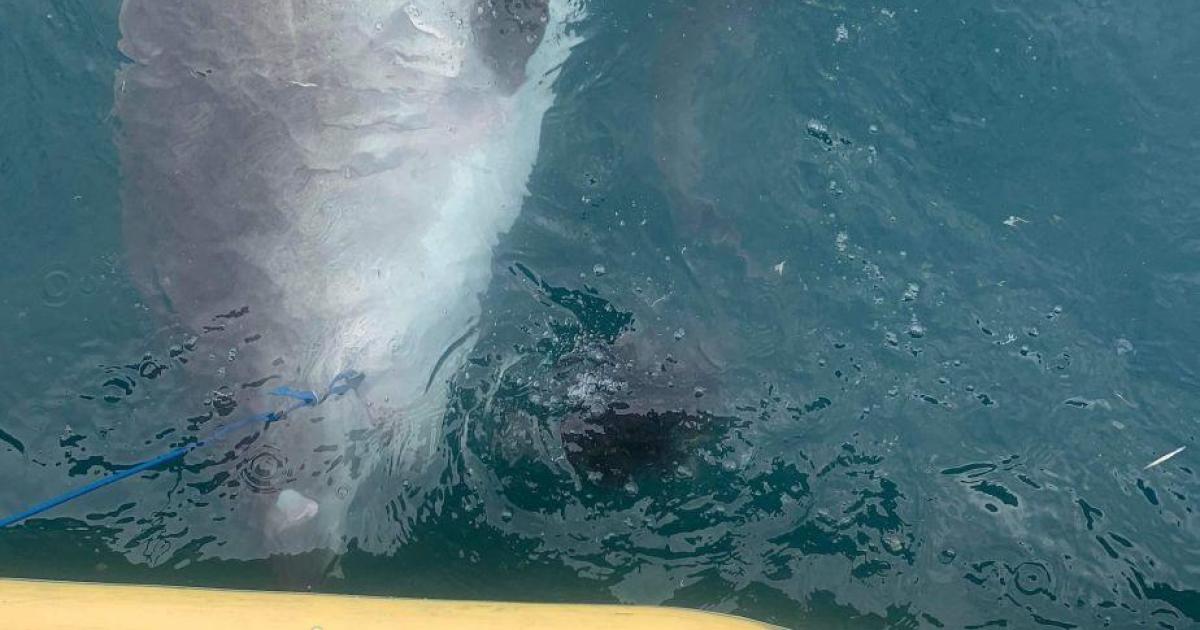[ad_1]
A tiger shark has surprised Australian scientists on an ocean research trip by regurgitating a spiky land-loving echidna in front of them.
Researchers from James Cook University said Thursday that they were tagging marine life on the northeast coast when the three-meter tiger shark they caught vomited a dead echidna — a spiny creature similar to a hedgehog.
Nicolas Lubitz said he could only assume the shark gobbled up the echidna — also known as spiny anteaters — while it was swimming in the shallows off the island, or traveling between islands, which the animals are known to do.
“We were quite shocked at what we saw. We really didn’t know what was going on,” he said Thursday. “When it spat it out, I looked at it and remarked ‘What the hell is that?'”
Lubitz said that he scrambled to get his phone. “I managed to only get one picture, but you can see the outline of the echidna in the water,” he said.
Nic Lubitz, James Cook University
Lubitz said the dead echidna was whole when it was regurgitated in May 2022, leading scientists to assume the shark had only recently eaten it.
Echidnas — which are only found in Australia and New Guinea — are egg-laying mammals, have spines protruding from their bodies and use a beak-like snout to eat ants. According to WWF, during breeding season, echidnas like to form a “train” in which up to 10 male echidnas follow a female in the hopes of becoming her mate.
It is unclear how many of these animals are in the wild.
“Tiger sharks will eat anything. They’re just a scavenger. I’ve seen videos of them eating a rock for no reason,” Lubitz said. “I think the echidna must have just felt a bit funny in its throat.”
The tiger shark was unharmed after its spiky snack and scientists fitted it with an acoustic tracker before releasing it back into the water.
As part of the research project, which ran from 2020 to 2023, scientists tagged 812 fish, rays and sharks with 10-year trackers to understand more about their movement and behavior.
Tiger sharks are ranked second by the International Shark Attack File for the number of unprovoked attacks on humans, behind white sharks. Last year, a Russian man died after being mauled by a tiger shark at one of Egypt’s Red Sea resorts.
While echidnas are not considered endangered, a specific type of the animal — Attenborough’s long-beaked echidna — is considered critically endangered on the International Union for Conservation of Nature’s red list. One was captured on camera last year for the first time in decades.
[ad_2]





